The biggest decision to make (after deciding to keep ferrets as companions) is where to keep them. This is a decision that can affect your life (and your ferrets’ lives!) for the next 10 years (or more), so it is one worth giving a lot of thought.
Ferrets need a large area to live in that is safe and secure. They need protection from the weather, predators, and household hazards. They need space for movement, exercise, and play; cosy places to sleep; constant access to food and water; a complex and interesting environment; and an appropriate number of litter trays. The enclosure must be well ventilated and easy to clean. So, there are a lot of things to think about before you bring your ferrets home.
Where to put an enclosure?
So long as the conditions are suitable, ferrets can be kept both indoors and outdoors. Some people allocate a room in their house just to their ferrets, other people will place a suitable enclosure within a room or in their yard.
What do ferrets need from their living space?
- Ferrets need plenty of space so they can engage in the behaviours which are important to them like foraging, hiding, resting, standing on their hind legs and scanning the surroundings (without touching the top of the enclosure), enjoying time with and apart from their ferret companions, playing, exercising, grooming, and marking their own territory.
- They don’t like high temperatures. Their preferred ambient temperature is 15–21°C and should never exceed 29°C. Avoid direct sunlight, and make sure they can seek shade or shelter is the temperatures are too high.
- They have a sensitive respiratory tract and are subject to allergies and infections. The enclosure must therefore be well-ventilated and easy to clean. Provide one or more litter trays that can be cleaned daily.
- The enclosure must be escape proof. Ferrets are renowned escape artists – if they can fit their little head through a space, the rest of the body will quickly follow. Ensure that the enclosure door latches securely (a double latch is ideal). The enclosure should be checked every day for possible escape routes and, if they are housed outdoors on dirt, check for any tunnels under construction!
- Ferrets need a clean toileting area, so provide one or more litter trays, half-filled with paper pellets. The more ferrets you have, the more litter trays you will need! As ferrets tend to back up into a corner to toilet, it’s a good idea to have a splashback on the enclosure or the litter tray to help keep things clean. A further suggestion is to place something in every corner of the enclosure – food, water, bedding, and a litter tray. As ferrets don’t like to toilet where they sleep or eat, this will help with their litter training.
- They need soft bedding on the floor of their enclosure. You can use towels or blankets, if your ferrets don’t chew on them (and they don’t have potentially dangerous strings hanging off them). A layer of paper bedding 2-4cm thick; e.g., recycled paper with no dye, is also an option. Don’t use wood shavings, as they can be harmful to the ferret’s respiratory system.
- Healthy ferrets sleep approximately 12-16 hours a day, and sometimes as much as 20 hours a day! So, they need safe comfortable sleeping places, such as hammocks and sleeping tents, and peace and quiet. Tubes and pipes also allow pet ferrets to hide, rest, and sleep.
- Hammocks are readily available in pet stores, or you can make your own. Ferrets love napping in them!
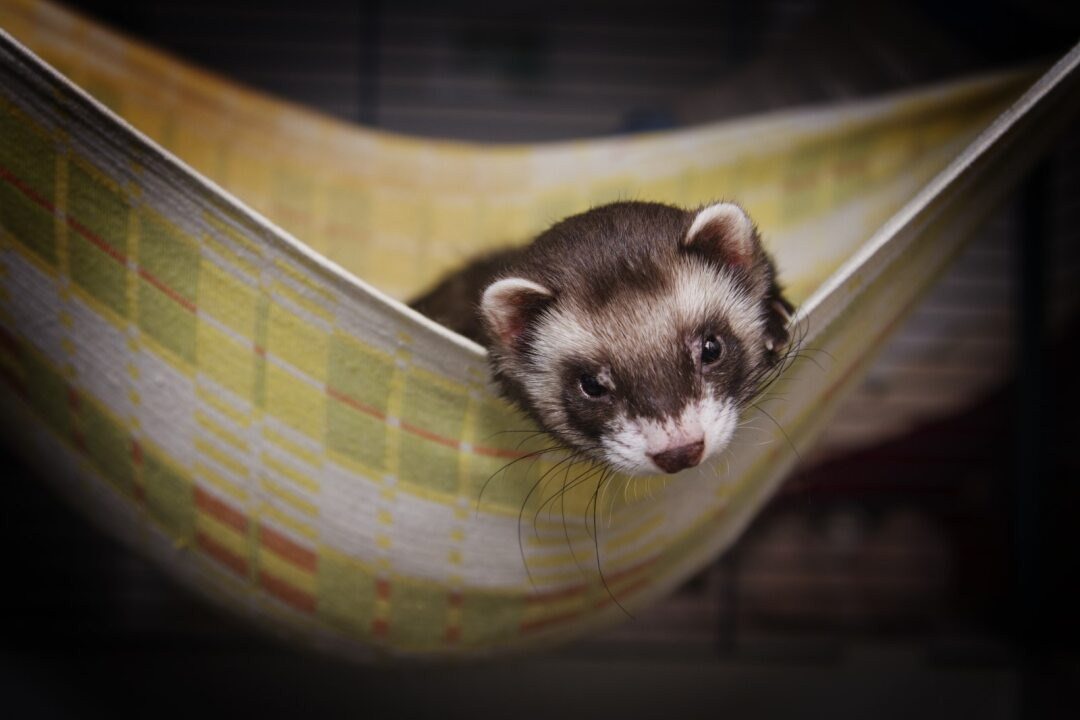
- Provide a shelter for both privacy and a sleeping area.
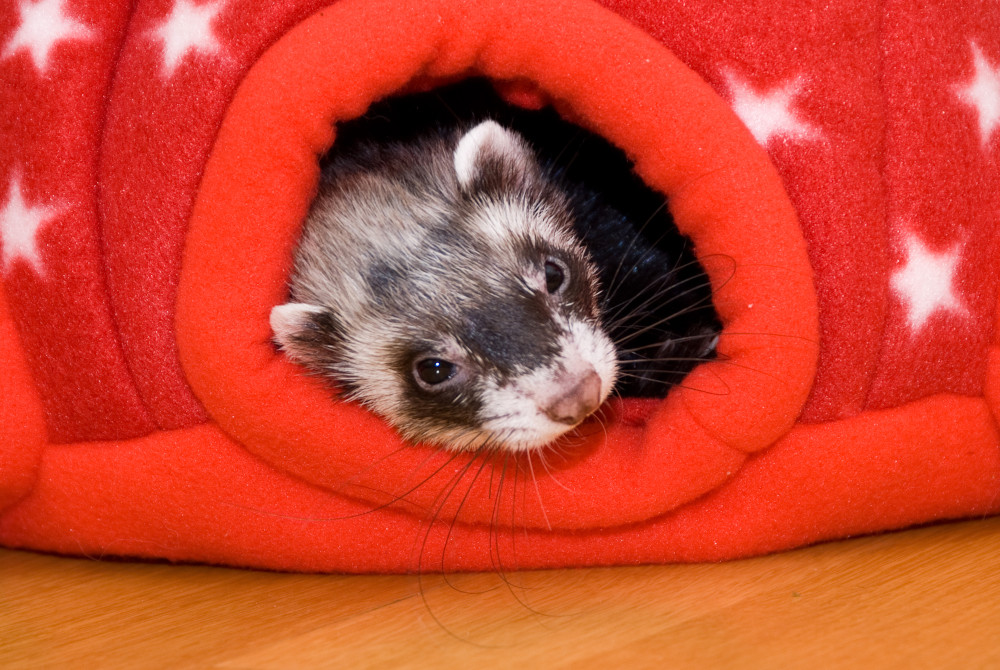
- They need to have constant access to food so they can eat whenever they want. So, food should be available all day and night in several small but sturdy dishes that will not easily tip over (ferrets tend to tip over dishes, so you don’t want them to run out of food if this happens).
- They need to have constant access to clean water and multiple sources of water should be provided to help encourage water consumption, Multiple water bowls that the ferrets cannot tip over are advised and water bottles can be provided as a backup. Since ferrets often like to play in their water and can soil it, cleaning the water bowls and providing fresh clean water regularly is important!
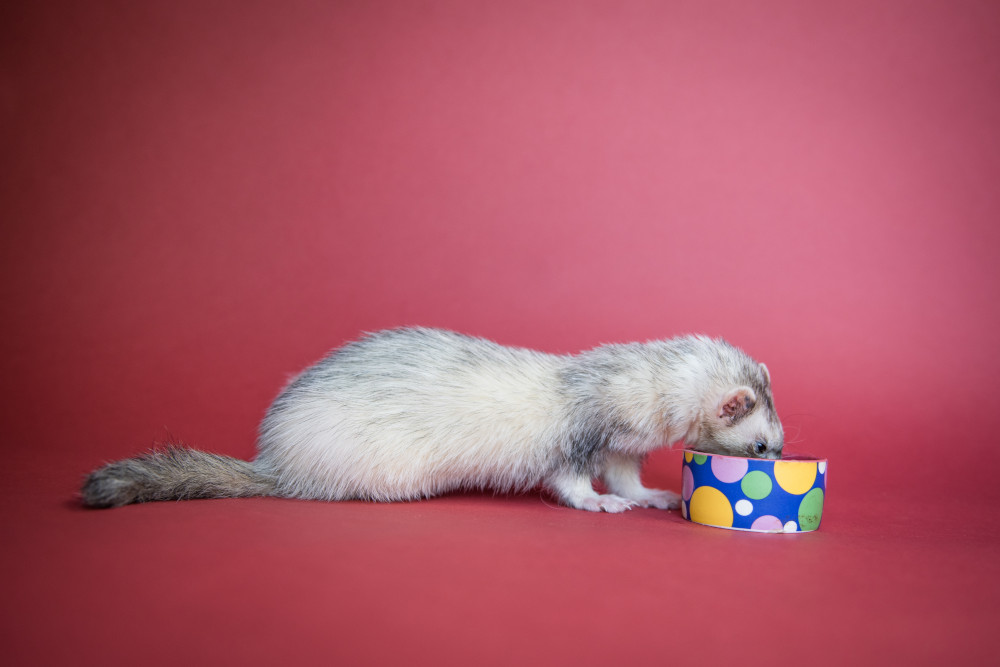
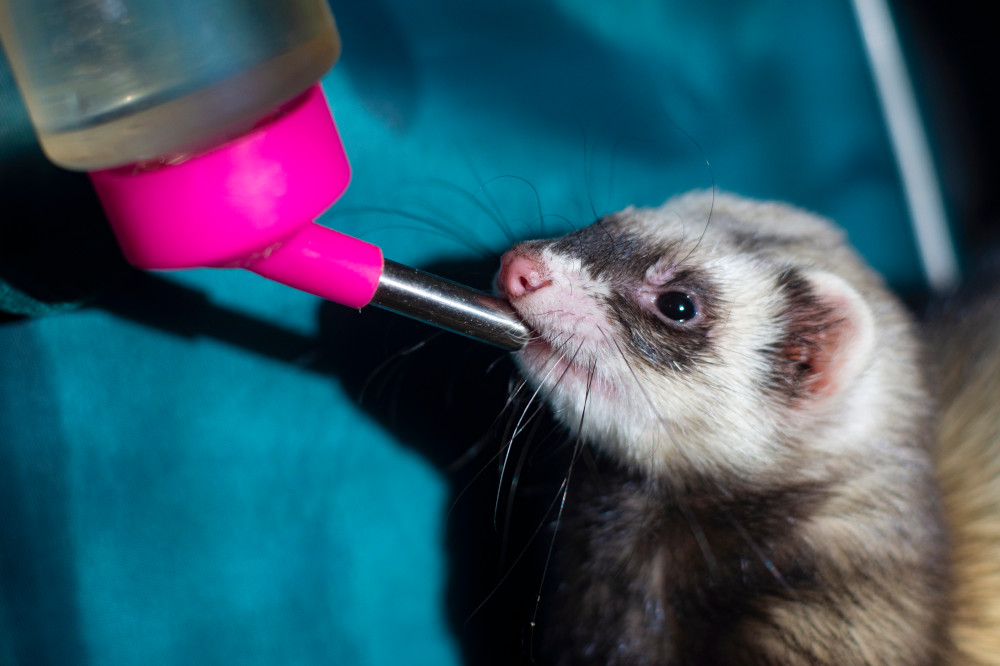
- Elements and items in the environment (e.g., toys, shelves, a hiding hut, tunnels) to encourage rewarding behaviours are essential for your ferrets. Ferrets love playing – for more information see our article on using environmental enrichment to provide opportunities for your ferrets to experience good welfare. This article includes information on toys and playthings and more.
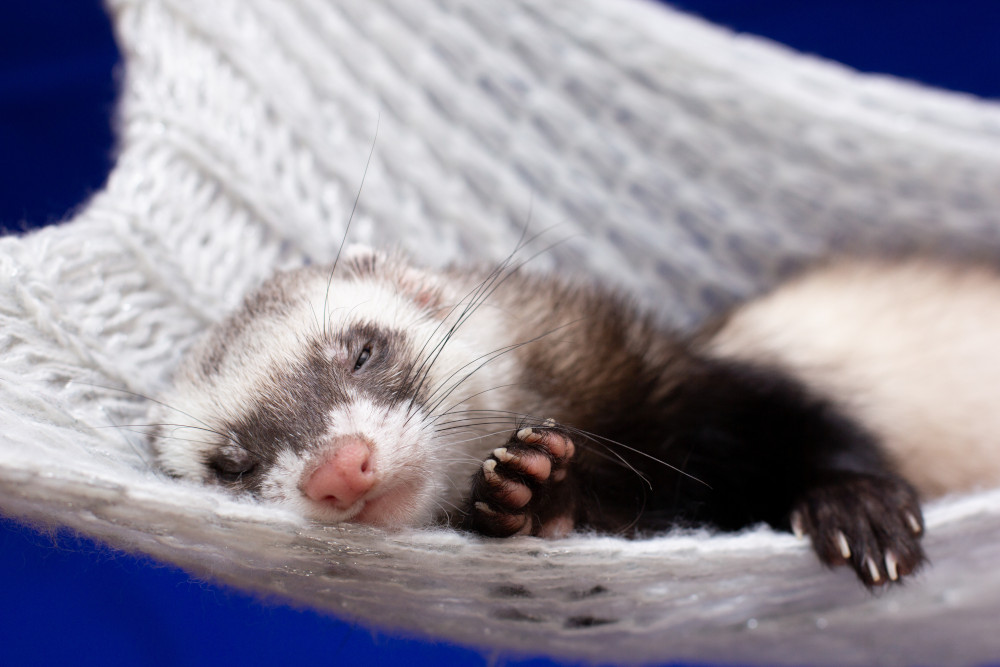
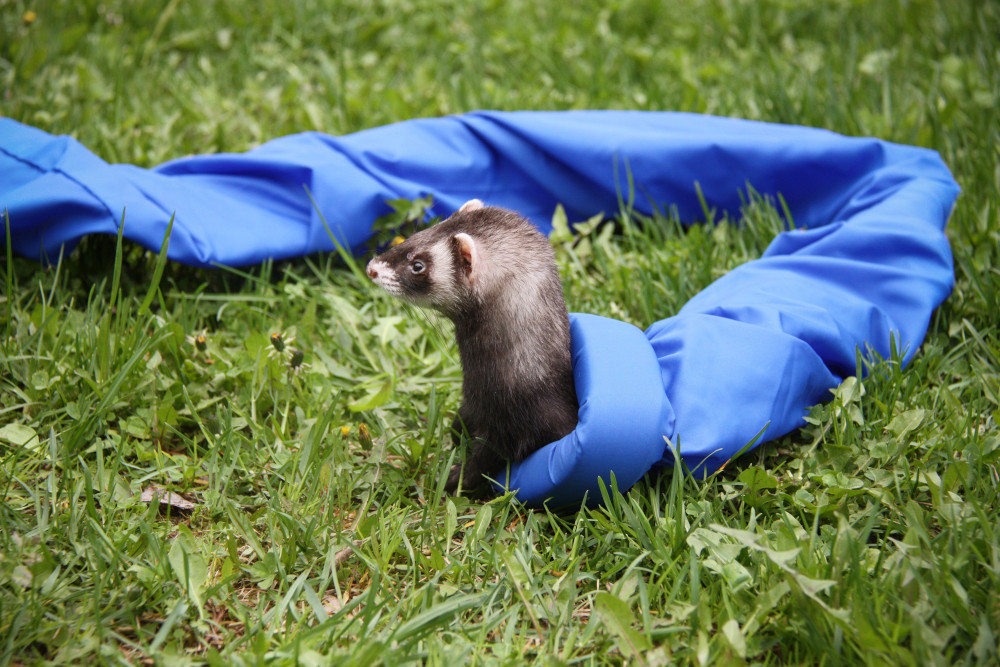
Planning for a living space that provides your ferrets with an optimal environment
- The more space and environmental complexity in their living space the better for these active and intelligent animals. When designing your ferrets’ enclosure, it is important to think about the behaviours they find rewarding and the resources they need (e.g. food, water, hiding places, litter tray, toys etc – see below) and make sure that the enclosure is big enough to accommodate all of that comfortably. Unfortunately, there are currently no evidence-based recommendations for the optimal size of companion ferret housing. Published guidelines for ferret housing are limited and for ferrets kept in laboratory settings rather than as companions.
- Don’t be afraid to build up, rather than out, to provide more space. Ferrets love ramps, shelving, and mezzanine floors, especially if they have good reasons to explore – a feed bowl, a sleeping hammock, a toy, etc.
- Ferrets are inquisitive, active animals and, if they live in an enclosure, as well as this being large enough for them to engage in all the behaviours a ferret finds rewarding, they should be given daily opportunities for supervised time outside of the enclosure for even more opportunities for choice and enjoyable activities.
References
Graham J, Knafo SE (2021) Exotic companion mammals (ferrets, rabbits, guinea pigs, and rodents). Infectious Disease Management in Animal Shelters
Iske C (2024) An Update on Key Nutritional Factors in Ferret Nutrition. Veterinary Clinics of North America: Exotic Animal Practice 27:31–45
Vinke CM, Schoemaker NJ (2012) The welfare of ferrets (Mustela putorius furo T). A review on the housing and management of pet ferrets. Appl Anim Behav Sci 139:155–168
Vinke C, Schoemaker NJ, van Zeeland YRA (2019) Ferrets (Mustela putorius furo). Companion Animal Care and Welfare: The UFAW Companion Animal Handbook
